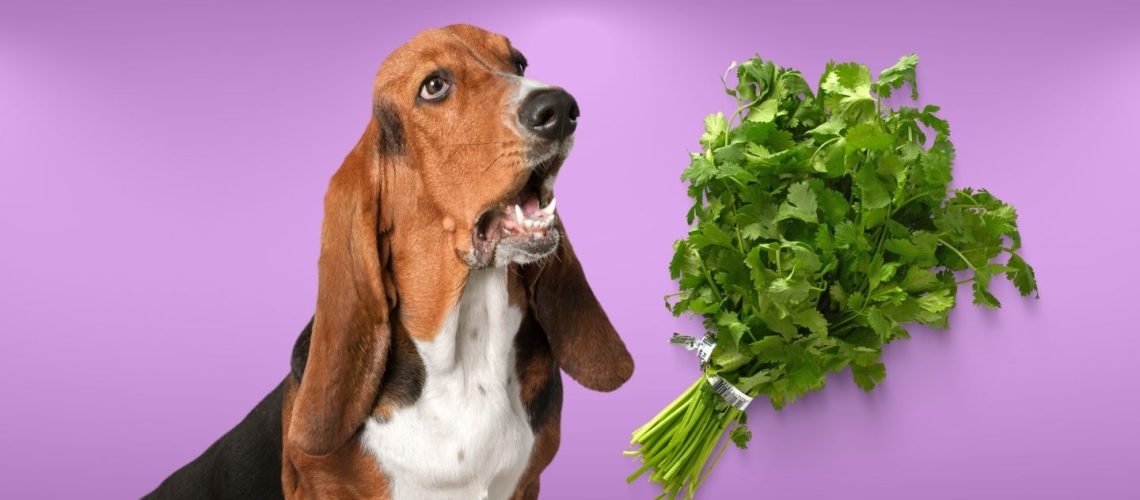Yes, dogs can safely eat cilantro in small amounts. This popular herb is often used in culinary dishes and is not toxic to dogs, making it a potential addition to their diet. However, it's crucial to ensure it's fed in moderation and not as a replacement for their regular food. Cilantro is rich in vitamins A, C, and K, as well as calcium, iron, magnesium, and potassium. Additionally, cilantro is known to aid digestion and freshen breath in our canine companions.
Nutritional content of cilantro
Cilantro packs a nutritional punch for its size. Below are the essential vitamins and minerals in cilantro:
Vitamins and minerals
- Vitamin A: supports eye health and immune function
- Vitamin C: antioxidant, supports immune system
- Vitamin K: aids in blood clotting and bone metabolism
- Calcium: contributes to bone and teeth health
- Iron: essential for oxygen transport in blood
- Magnesium: supports nerve and muscle function
- Potassium: helps regulate blood pressure and fluid balance
Cilantro also contains several antioxidants that can protect your dog's cells from damage.
Potential health benefits for dogs
Feeding cilantro to your dog can provide various health benefits.
Digestive health
Cilantro can aid in digestion and freshen your dog's breath, making it an excellent herbal option for a treat.
Anti-inflammatory properties
Cilantro has anti-inflammatory properties that can benefit dogs with joint pain and swelling, particularly in older dogs.
Precautions when feeding cilantro to dogs
Though cilantro is generally safe for dogs, there are some precautions to consider.
Allergy concerns
Some dogs may be allergic to cilantro, causing skin irritation or digestive upset. Monitor your dog for signs of an allergic reaction and discontinue feeding them cilantro if any adverse symptoms appear.
Stems vs. leaves
Avoid feeding stems to your dog as they can be difficult to digest and can cause stomach problems. Instead, focus on feeding the leaves.
Fiber content
Due to its high fiber content, avoid feeding large amounts of cilantro to your dog as it may cause digestive issues.
How to introduce cilantro to your dog's diet
Start by introducing cilantro slowly to your dog's diet in small amounts. You can give them a few cilantro leaves or a very small amount of chopped cilantro as a treat. Monitor your dog's reaction and stop feeding them cilantro if any signs of an allergic reaction occur.
Alternatives to cilantro for dogs
If your dog cannot or does not enjoy cilantro, there are other safe herbs and greens to consider for their diet, such as:
- Parsley
- Basil
- Rosemary
- Spinach
Each herb or vegetable may offer various health benefits, so it's essential to research them and monitor your dog's reaction when introducing something new to their diet.
Summary
In conclusion, cilantro can be a beneficial addition to your dog's diet if fed in moderation. The herb is safe for consumption and provides vitamins, minerals, and antioxidants. Always monitor your dog's reaction when introducing cilantro or any new food, and consult with a veterinarian if you have any concerns. Feel free to explore other safe herbs and greens for your dog's enjoyment as well.


























